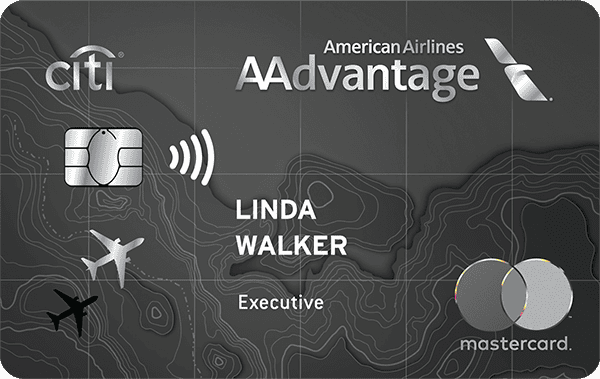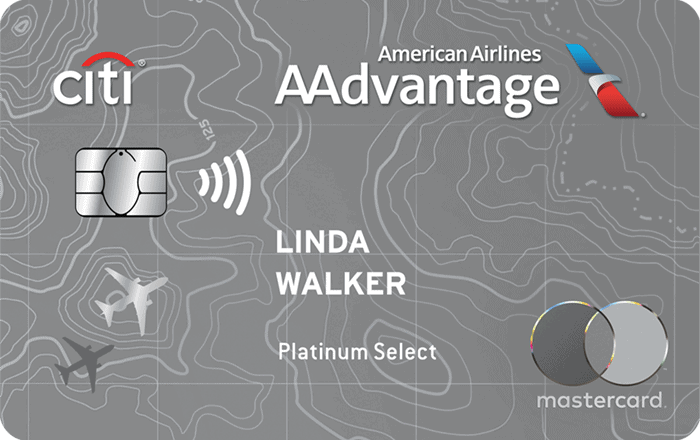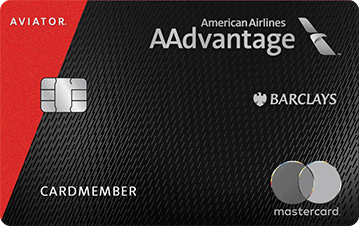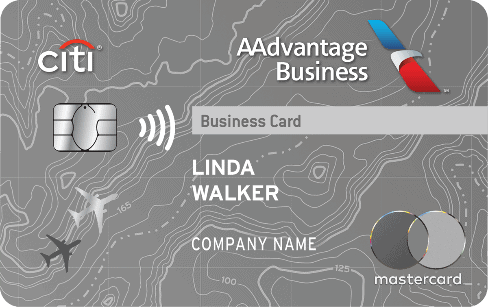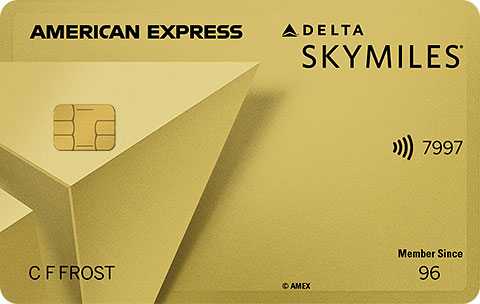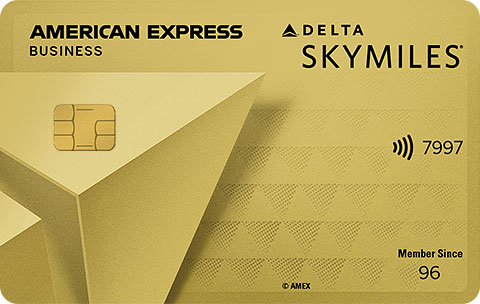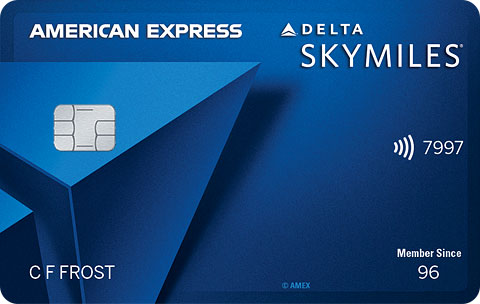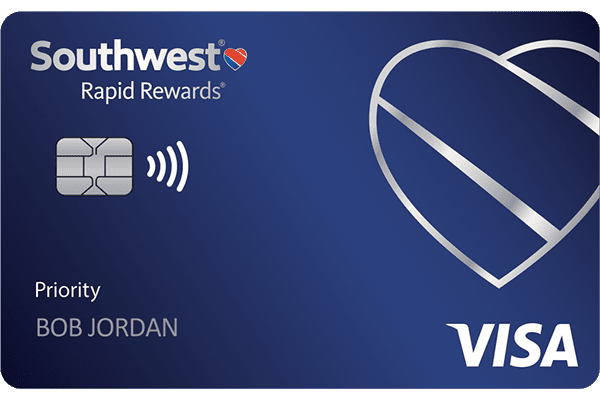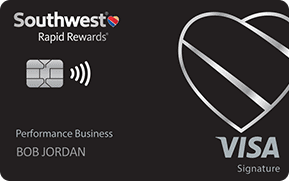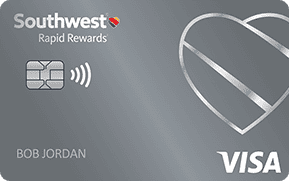Best Airline Credit Cards
“I mainly fly with X airline. This means that I should get their credit card, right?”
This is perhaps the most common question we see in the world of points & miles, and one that just about every frequent traveler has asked themselves at some point.
While many people make their decision based on this criteria alone, the answer is not as simple as you might think.
This guide will help you determine if airline credit cards are best for your situation, as well as compare the best options on the market today.
10xTravel is part of an affiliate sales network and receives compensation for sending traffic to partner sites, such as CreditCards.com. This compensation may impact how and where links appear on this site. This site does not include all financial companies or all available financial offers. Terms apply to American Express benefits and offers. Enrollment may be required for select American Express benefits and offers. Visit americanexpress.com to learn more. All values of Membership Rewards are assigned based on the assumption, experience and opinions of the 10xTravel team and represent an estimate and not an actual value of points. Estimated value is not a fixed value and may not be the typical value enjoyed by card members.
Editors Note: Opinions expressed here are author’s alone, not those of any bank, credit card issuer, hotel, airline, or other entity. This content has not been reviewed, approved or otherwise endorsed by any of the entities included within the post.
Airline Credit Card Overview
Airline credit cards have been a staple of the travel world for decades.
Most airline credit cards have very similar features from one to the next. You can earn frequent flyer miles from your everyday purchases, bonus miles for purchases with the airline associated with your card, and can expect benefits such as priority boarding and free checked bags.
Almost every major U.S. based airline has a branded credit card (or multiple) that is issued by a bank or other financial institution. It’s important to remember that the bank or financial institution is the one who handles the day-to-day use of the credit card, not the airline. So if you need to talk to someone about your account you should call the bank, not the airline.
Most airline credit cards charge an annual fee, with those fees generally being in the range of $99 to $199 per year. Many airline cards will waive this fee for the first year to give you a chance to “test drive” the card before being charged your first annual fee.
Lastly, most airline credit cards will offer some sort of bonus when you sign up for the card and meet the minimum spending requirement. These bonuses will often fluctuate throughout the year, but generally will be between 20,000 and 70,000 bonus points.
All of these are great for travelers who are loyal to a particular airline, but are airline credit cards the best choice overall?
Are Airline Credit Cards Best for Frequent Flyers?
While airline credit cards can be great for anyone who is very loyal to a particular airline, they do have some clear drawbacks for the average traveler.
The biggest one being that the mileage earnings and benefits are often restricted to one particular airline and its partners.
Using an American Airlines branded credit card can be great if you are redeeming your miles or flying with AA or their OneWorld Partners, but this card will do nothing for you if you are flying Delta, United, Southeast, or the dozens of other airlines that have no association with American Airlines.
This is why credit cards with transferrable points are often a better choice for the average person.
Take the Chase Sapphire Preferred® Card for example.
Sapphire Preferred earns points that can be transferred to United, Southwest, British Airways, and a handful of other airlines and hotels at a 1:1 ratio. Which gives you a ton options for redeeming your points that don’t leave you tied to one particular airline.
Chase Sapphire Preferred® Card
75,000
bonus points
after you spend $5,000 on purchases in the first 3 months from account opening.
Annual Fee: $95
It’s almost as if you have a United, Southwest, British Airways, Air France, etc. credit card all rolled in to one.
You can also redeem points earned by Chase Sapphire to book any type of travel through the Chase Travel Portal, meaning you will always have some sort of option to redeem your points for whatever trip you like.
This is why most people should consider a credit card that earns transferrable points before considering an airline credit card.
And of course you need to remember that you are not restricted to one type of credit card. There are plenty of good reasons to have an airline credit card or two in addition to a card that earns transferrable points.
Best Airline Credit Cards
Trying to rank the best overall airline cards is virtually impossible because of the fact that the perks and miles are tied to a particular airline.
The value of an airline credit card is also dependent on the travel habits of the person using it. A Southwest credit card might offer incredible value overall, but would be somewhat worthless to anyone who has aspirations of traveling to Europe or Asia or who lives in a region that is not serviced by Southwest.
For that reason, we will split the best airline credit cards up by airline and also discuss options for the best premium card, best value, best no-fee card, and best business card.
Best Credit Cards for American Airlines
American Airlines is the largest airline based in the U.S. and has one of the most widely used loyalty programs in all of travel.
AA is also one of the few airlines in the world with credit cards issued by multiple banks. In this case, Citi and Barclays.
There are nearly a dozen total American Airlines branded credit cards for both personal and business use. They have annual fees that start at $0 and go higher with a variety of benefits to match these fees.
Best Premium Card: American Airlines
Citi® / AAdvantage® Executive World Elite Mastercard®
Earn 70,000
American Airlines AAdvantage® bonus miles
after spending $7,000 in purchases within the first 3 months of account opening.
Annual Fee: $595
Best Value Card: American Airlines
Citi® / AAdvantage® Platinum Select® World Elite Mastercard®
For a limited time, earn 80,000
American Airlines AAdvantage® bonus miles
after $3,500 in purchases within the first 4 months of account opening.
Annual Fee: $99, waived for the first 12 months
AAdvantage® Aviator® Red World Elite Mastercard®
60,000
AAdvantage Bonus Miles
after making your first purchase and paying the $99 annual fee in full, both within the first 90 days.
Annual Fee: $99
Best Business Card: American Airlines
Citi® / AAdvantage Business™ World Elite Mastercard®
Earn 65,000
American Airlines AAdvantage® bonus miles
after spending $4,000 in purchases within the first 4 months of account opening.
Annual Fee: $99, waived for the first 12 months
Best Credit Cards for Delta
Delta has perhaps the most popular airline credit cards on the market (anecdotally speaking), mainly due to the extensive marketing that is put behind their cards and the high level of brand loyalty that their brand enjoys.
Like their competitors, Delta has a range of credit cards that fit every budget and that can be used for either personal or business use.
Best Premium Card: Delta
Delta SkyMiles® Reserve American Express Card
100,000
Bonus Miles
after you spend $6,000 in eligible purchases on your new Card in your first 6 months of Card Membership.
Annual Fee:
$650
Best Value Card: Delta
Delta SkyMiles® Gold American Express Card
80,000
Bonus Miles
after you spend $3,000 in eligible purchases on your new Card in your first 6 months of Card Membership.
Annual Fee:
$0 introductory annual fee for your first year, then $150.
Best Business Card: Delta
Delta SkyMiles® Gold Business American Express Card
Limited Time Offer: Earn 90,000
Bonus Miles
after spending $6,000 in purchases on your new Card in your first 6 months of Card Membership. Offer Ends 7/16/25.
Annual Fee:
$0 introductory annual fee for your first year, then $150.
Best No-Fee Card: Delta
Delta SkyMiles® Blue American Express Card
10,000
Bonus Miles
after you spend $1,000 in purchases on your new card in your first 6 months.
Best Credit Cards for United Airlines
United Airlines offers three different personal cards and one business card after some recent changes to their product lineup. While this is fewer options than many of their competitors, United does have a good variety of cards for every budget and travel style.
Best Premium Card: United
Limited-Time Offer: Earn 90,000
Bonus Miles
after you spend $5,000 on purchases in the first 3 months from account opening.
Annual Fee: $695
Best Value Card: United
Limited-Time Offer: Earn 60,000
Bonus Miles
after you spend $3,000 on purchases in the first 3 months your account is open.
Annual Fee: $0 for your first year, then $150.
Best Business Card: United
Earn 75,000
Bonus Miles
and 2,000 PQP after you spend $5,000 on purchases in the first 3 months your account is open.
Annual Fee: $0 for your first year, then $150.
Best Business Card: United
Earn 75,000
Bonus Miles
and 2,000 PQP after you spend $5,000 on purchases in the first 3 months your account is open.
Annual Fee: $0 for your first year, then $150.
Best Credit Cards for Southwest
Southwest has a handful of cobranded airline credit cards to suit almost any budget. Many people also take advantage of their cards to earn a Southwest Companion Pass, which is the highest status offered by Southwest.
Note however that there are restrictions that prevent you from getting multiple Southwest credit cards. You are limited to earning one Southwest personal card bonus per 24 months and also cannot currently be holding a personal Southwest credit card in your own name.
These restrictions do not apply to the Southwest Business credit cards and there is no “cross over” restriction that covers personal and business card eligibility.
Best Premium Card: Southwest
Southwest Rapid Rewards® Priority Credit Card
50,000
Bonus Points
after spending $1,000 on purchases in the first 3 month from account opening
Annual Fee: $149
Best Value Card: Southwest
Southwest Rapid Rewards® Priority Credit Card
50,000
Bonus Points
after spending $1,000 on purchases in the first 3 month from account opening
Annual Fee: $149
Best Business Card: Southwest
Southwest® Rapid Rewards® Performance Business Credit Card
80,000
bonus points
after you spend $5,000 on purchases in the first 3 months from account opening.
Annual Fee: $199
Best No-Fee Card: Southwest
Southwest is one of the few U.S. based airlines to not offer a no-fee card, making its options with the lowest annual fees the best option for anyone looking to minimize their fees.
Southwest Rapid Rewards® Plus Credit Card
50,000
Bonus Points
after you spend $1,000 on purchases in the first 3 months from account opening.
Annual Fee: $69
Bottom Line
While airline credit cards might not be the ideal first choice for anyone looking to save on travel, they can provide quite a bit of value and play an important role in your overall card strategy.
Just be sure to compare their benefits to the more popular transferrable points earning cards to ensure you are not leaving money on the table.
FAQ
How many miles does a free ticket cost?
The amount of miles needed to book a free ticket depends on the frequent flyer program, your origin and destination, class of service, and when you are traveling. This can be highly variable from one program to the next so it’s difficult to even provide benchmarks, but if I had to do so I would estimate that you can expect to pay ~25,000 miles for a round-trip domestic flight within the contiguous 48 states and ~50,000-70,000 miles for a round-trip flight to Europe or Asia.
Can you transfer airline miles from one airline to another?
Generally not, at least without paying a fee that is prohibitively high. If you have miles with a particular airline you should only consider using them for travel on that airline or any of its partners.
Can you use airline miles to book hotels or other travel?
Sometimes you can redeem airline miles to book other forms of travel, such as hotels or activities. But the value that you get with these redemptions tends to be much lower than what you would get if you used your airline miles to book an award flight. You should avoid using your airline miles for non-airline redemptions if at all possible.
Which is the best airline credit card overall?
It’s very difficult to compare airline credit cards because their value is highly dependent on which airline you fly most frequently and how you plan to redeem your miles. In general, you should start by considering the cards that are branded with the airline with which you travel most often, but that does not always hold true.
Can I use my miles to book a ticket for a friend or family member?
Most airlines will allow you to use your miles to book award travel for other people. There is rarely an additional fee or restrictions to do so.
Can I have more than one airline credit card?
Generally yes, as long as you follow the eligibility rules of each issuer. Many people have multiple airline credit cards and will often change these cards based on shifting travel habits.
How do airline credit cards work?
Airline credit cards are often referred to as “co-brand cards” because they are issued by a financial institution but have an airline brand on them.
For example, all of the Southwest credit cards are Southwest branded credit cards that are issued by Chase. This card earns Southwest miles and comes with perks for travel on Southwest but any day-to-day account issues are handled by Chase. So there is no need to contact Southwest for any account related issues.
Airline credit cards are attached to your frequent flyer account with the airline to receive any miles earned on the card.
In general, you can only attach an airline card to the frequent flyer account of the primary card holder. So you cannot “team up” and use multiple airline credit cards to earn miles in a single account.



